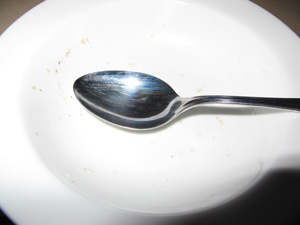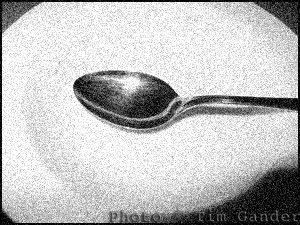A: Possibly not.
That’s some seriously dangerous thinking by a photographer who staunchly believes that copyright is the lifeblood of this industry, but I think it might be true. So let’s lift the lid on this spectacularly large can o’ worms and see what spills out.
Copyright in the UK is under serious threat. The rather tainted conclusions of the Hargreaves report aim to persuade the UK Government to introduce orphan works legislation, which in tandem with something called extended collective licensing, will allow large corporate organisations to profit from the millions of un-attributed photos currently found on line or stored in ready-made databases (the BBC likes to collect peoples’ photos and then orphan them).
This concept is full of gaping holes ready to be filled by law suits, but I’m almost hoping the legislation comes to pass just so the Government can finally be forced to understand quite how incompetent Hargreave’s review has been with regard the protection of photographers’ copyright and moral rights. I fear nothing less than legal chaos will get them to see sense.
But back to the idea that not every photo I (or you) take is necessarily covered by copyright…
The starting point for copyright in the UK is that it is automatic in any new work. You take a picture; it’s copyright. You don’t have to register it or even declare it’s status as copyright. It just is. But take a look at this clause from the UK copyright law fact sheet:
“Copyright is an automatic right and arises whenever an individual or company creates a work. To qualify, a work should be regarded as original, and exhibit a degree of labour, skill or judgement.”
That’s interesting, because what it means is that if you can’t show that a photo you have taken exhibits a degree of labour, skill or judgement, it may be it isn’t covered by copyright.
Note the “or” in that clause though. A photo could be the product of only one of labour, skill or judgement and it would benefit from copyright protection. It would have to be lacking in all three in order not to qualify.
Presumably this is so that people can’t copyright everyday objects in order to prevent their wider use. I can’t copyright a blank piece of A4 paper, then sue anyone who writes a letter on blank A4 paper by citing their work as derivative of my copyright work. Equally I can’t take a photo of a famous landmark, then try to prevent anyone else from doing the same by citing my copyright. Each person who photographs that landmark will own the copyright in their photo of it, not in the scene itself. This point is stretching a little far now, since the photo of a landmark is the “realisation” of the scene, and it’s the realisation of a scene or idea which has copyright vested within it, not the scene or idea itself.
So getting back on track to my point (yet again), when would a photograph not exhibit a degree of labour, skill or judgement? Well presumably when the photographer hasn’t chosen the angle, chosen the camera settings, which lens or focal length to use and hasn’t judged the scene with any degree of care. You could almost argue that someone holding an iPhone up to snap a view has done none of these things and might therefore not have the protection of copyright for their picture.
Dammit; worms everywhere. Discuss amongst yourselves while I fetch the dustpan and brush.


